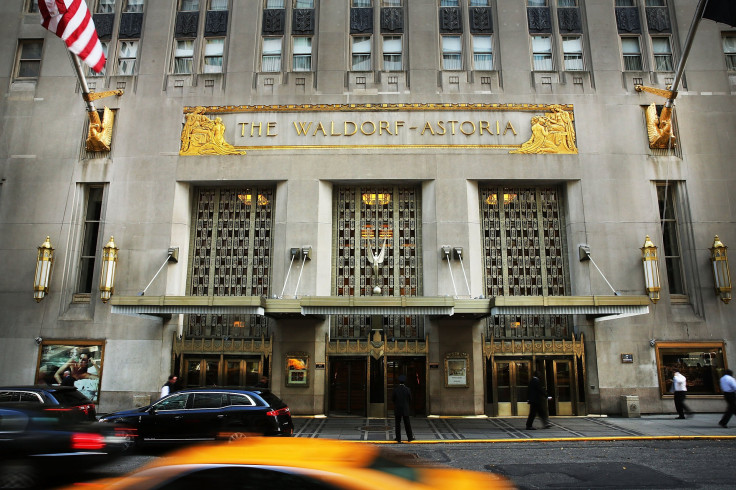State Department Ditches Waldorf Astoria Over China Spying Concerns

The White House and the U.S. state department are to end their longstanding practice of staying at New York's Waldorf Astoria, amid concerns about spying in the Chinese-owned hotel, according to media reports.
The hotel has been the traditional base of operations for U.S. diplomats and officials during the annual U.N. General Assembly, and is the permanent home to the country's U.N. Ambassador.
But the property was purchased by the Beijing-based Anbang Insurance Group for $1.95bn from the Hilton hotel group last year, and the Chinese owners have announced a “major renovation,” which has raised U.S. concerns about possible spying, officials told the Associated Press.
U.S. officials will now work from the city's Palace hotel during the annual conference.
“Because the Chinese have made so many cyberattacks and eavesdropping against the United States, it’s very prudent for the United States to make sure that all these important bilateral meetings with heads of state don’t take place where they’re going to be transmitted to China,” foreign affairs analyst Pamela Falk told CBS New York.
While neither the State Department or the White House made an official statement on the matter, at the time of the sale, in October 2014, officials said that it could affect the government's relationship with the hotel.
The U.S. has said it believes Chinese hackers were behind a cyberattack on the Office of Personnel Management, which saw the personal information of millions of federal employees breached. While China has denied the claims, the incident was the latest in a series of cyber espionage incidents the U.S. has linked to the country, which seek to advance its commercial, military and political interests.
The State Department routinely warns U.S. diplomats in China about physical and electronic surveillance and tells American citizens in the country to be aware of similar risks, notably in hotels, the Guardian reported.
© Copyright IBTimes 2025. All rights reserved.






















